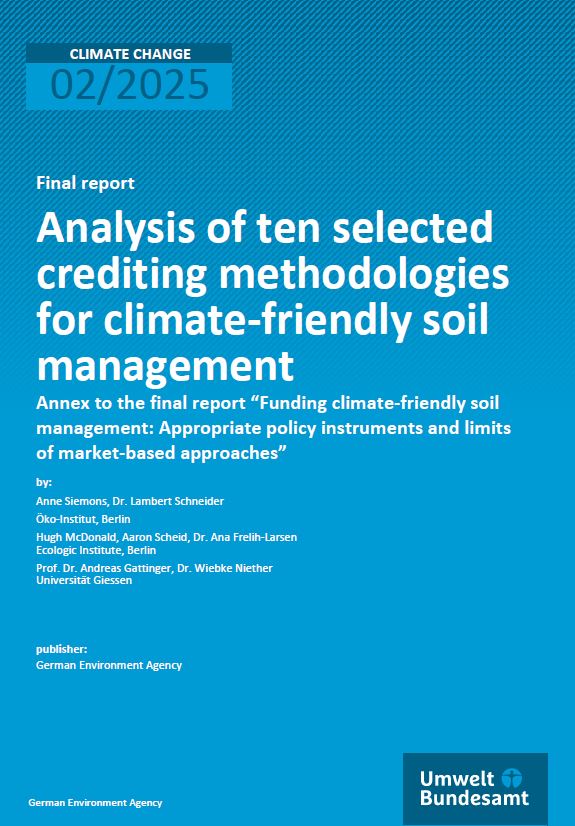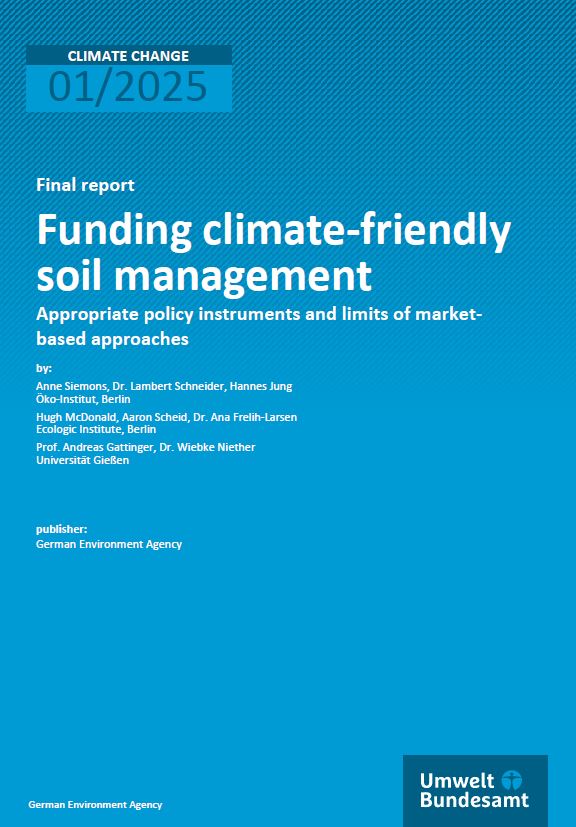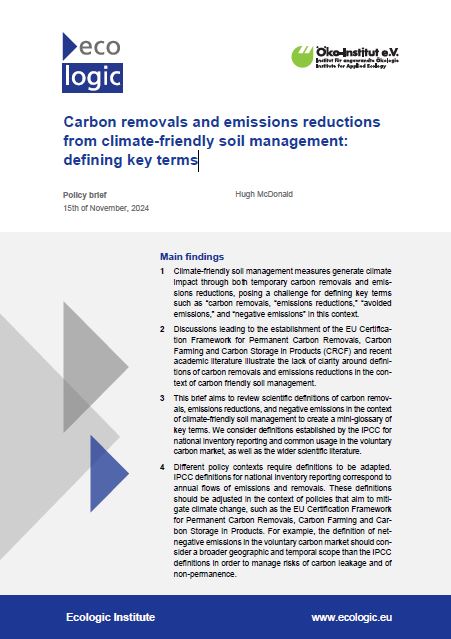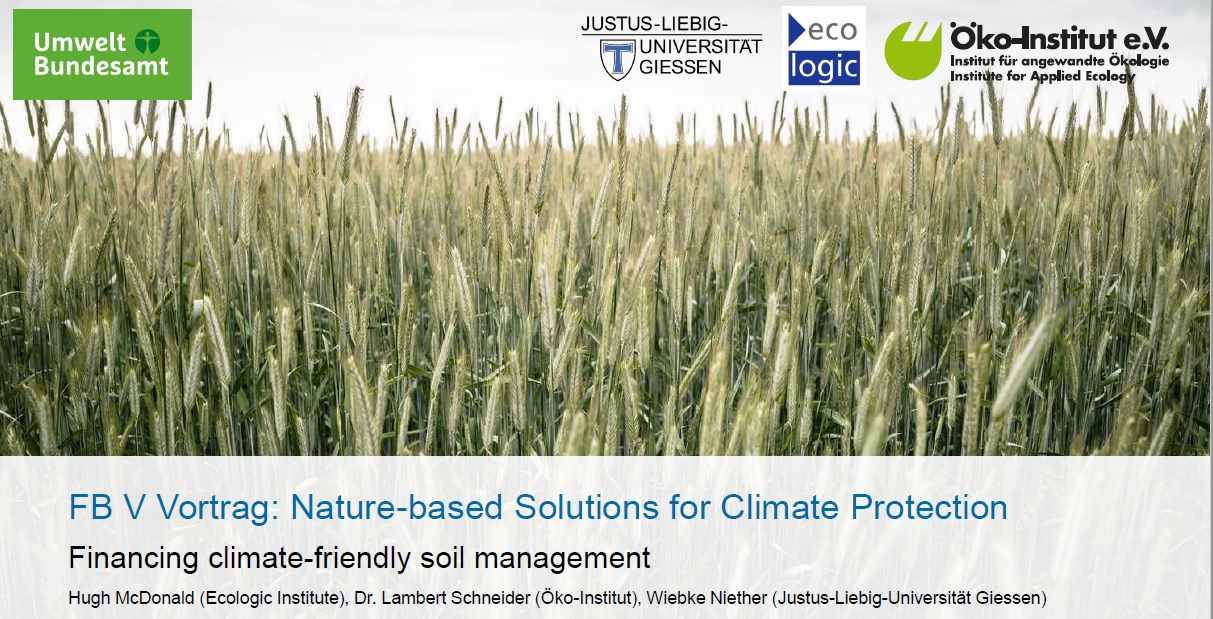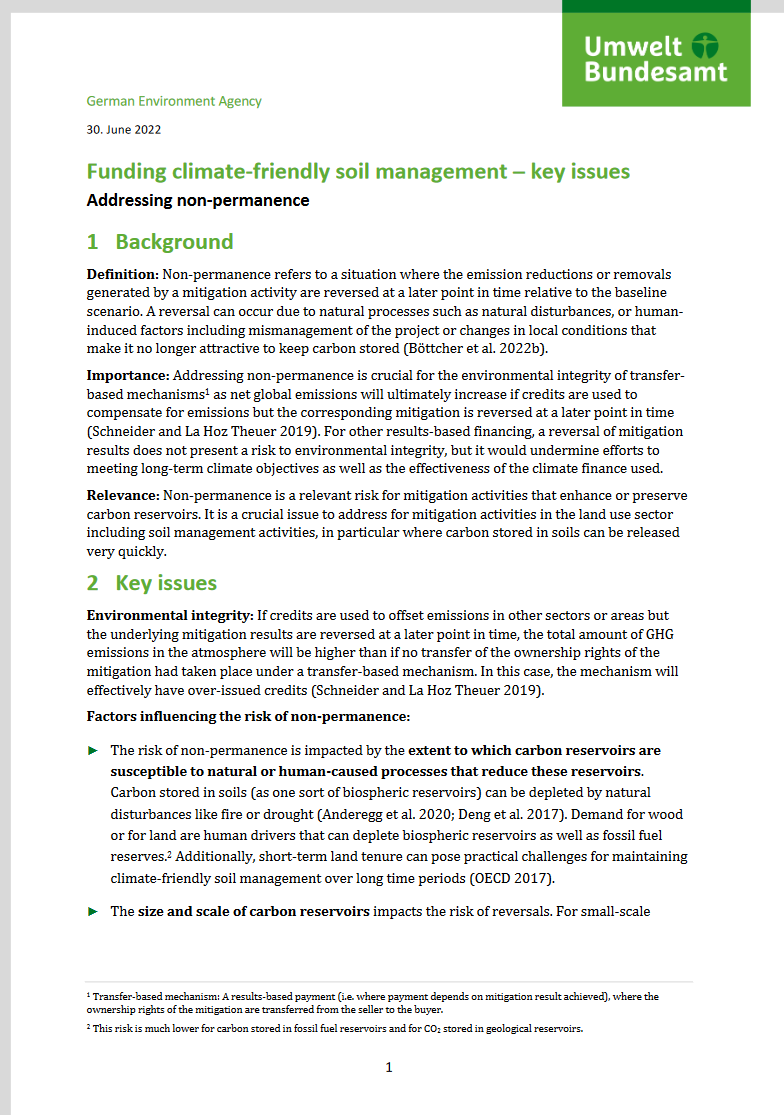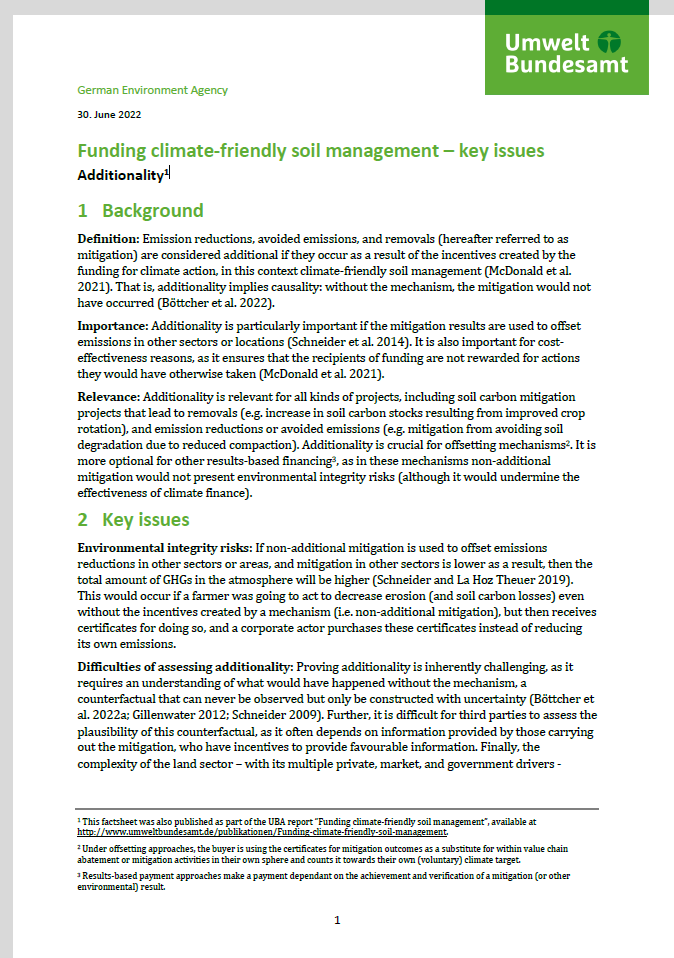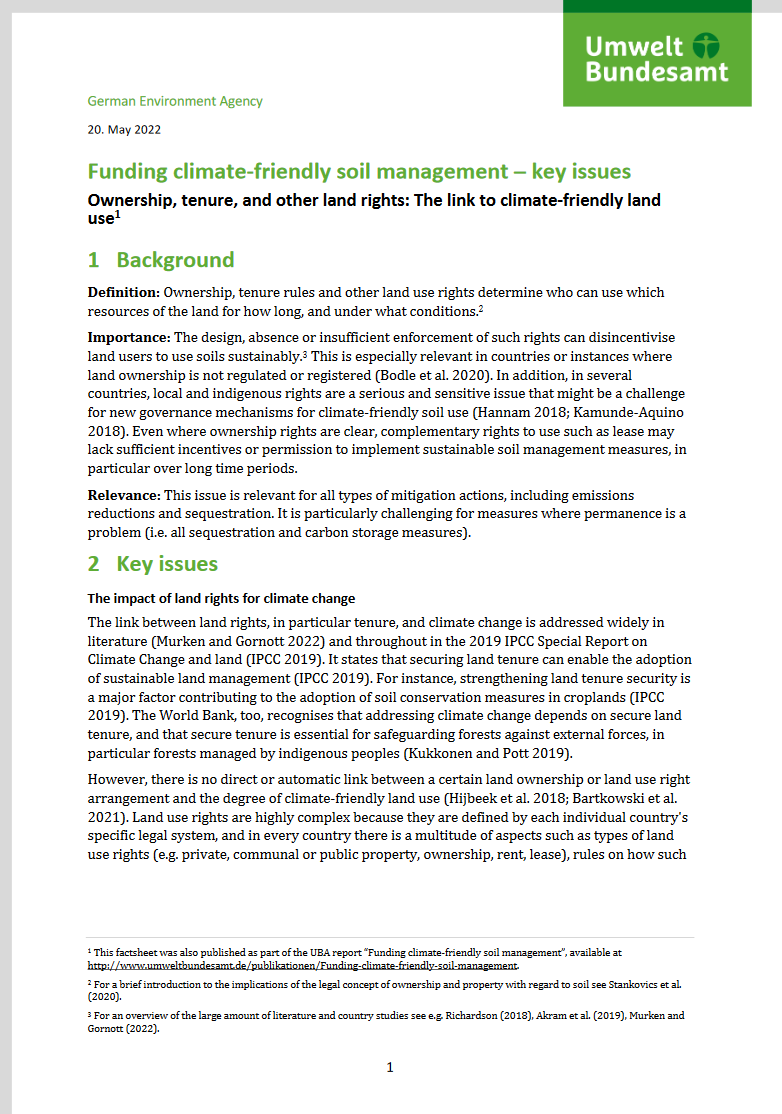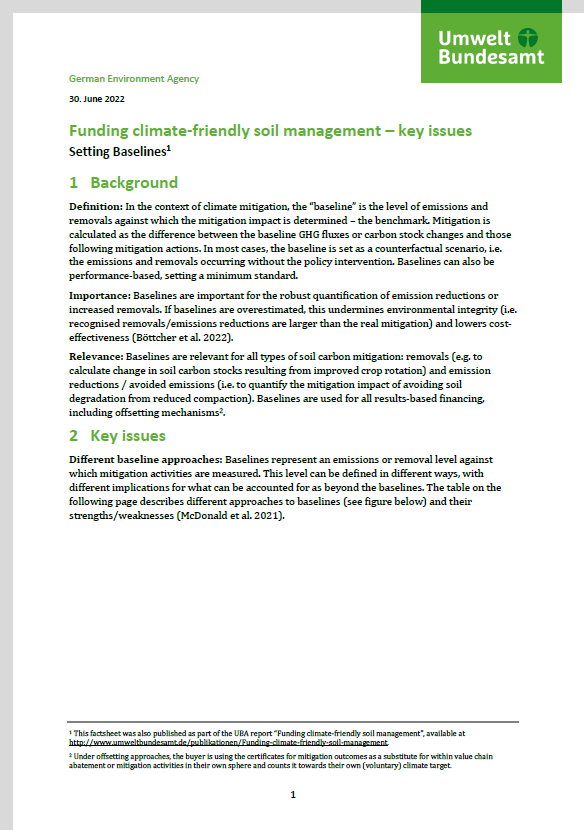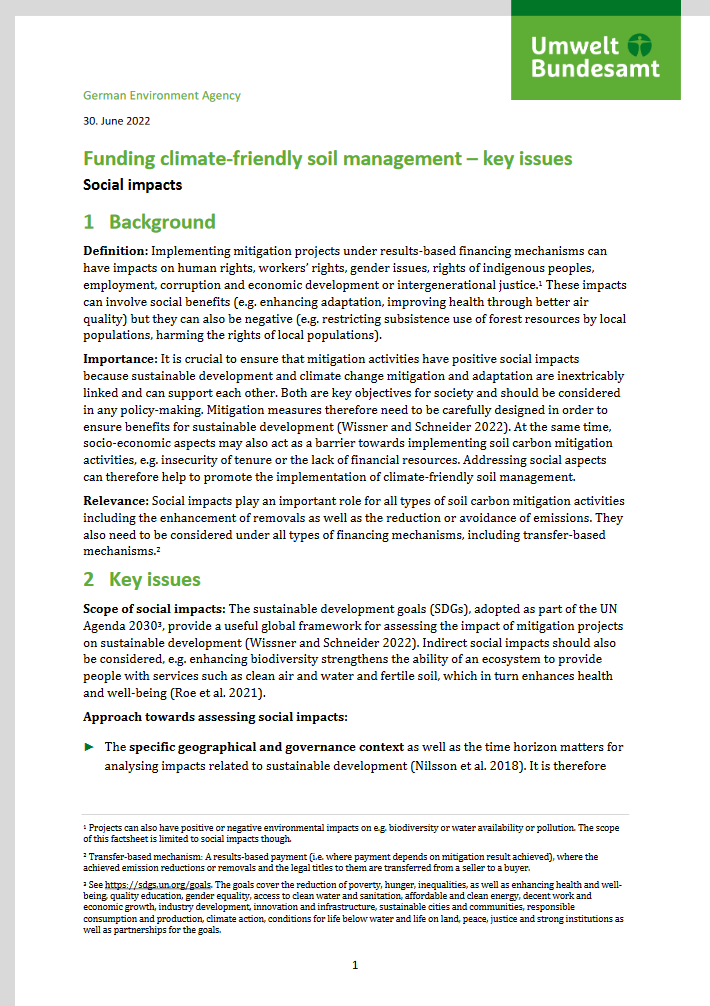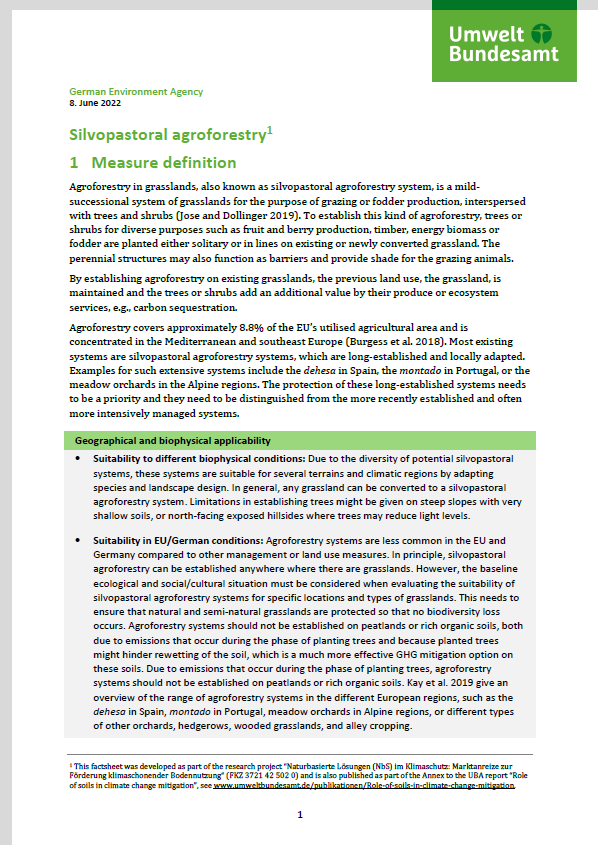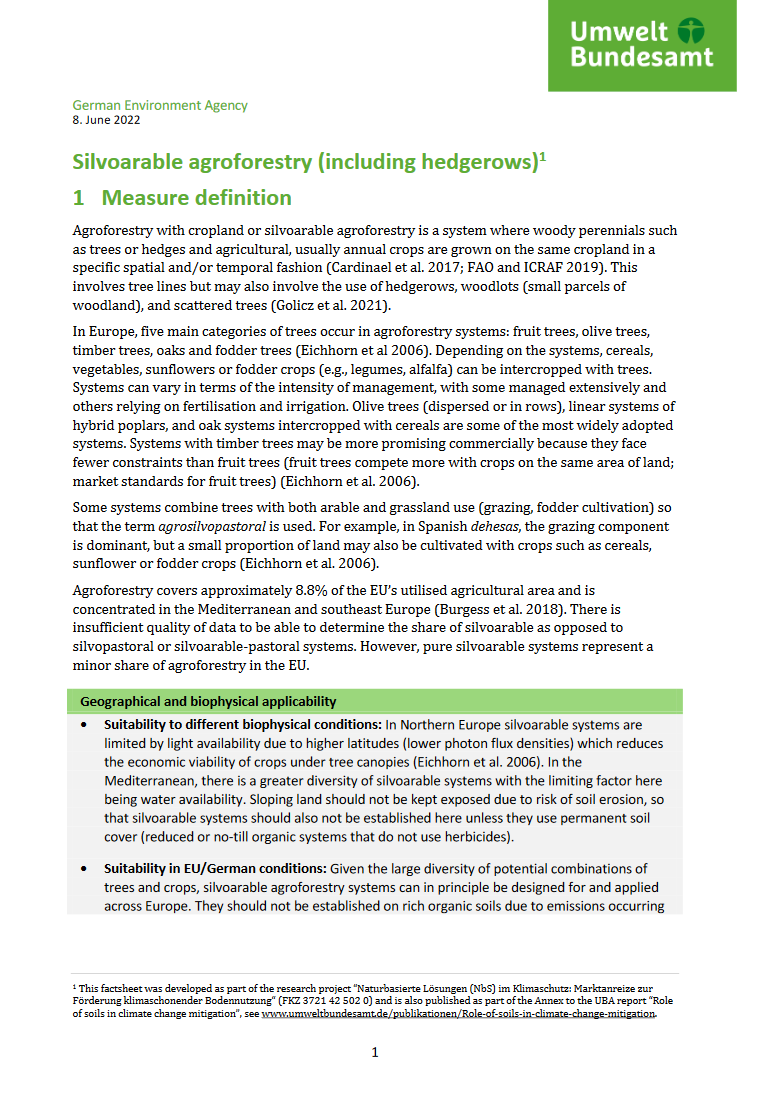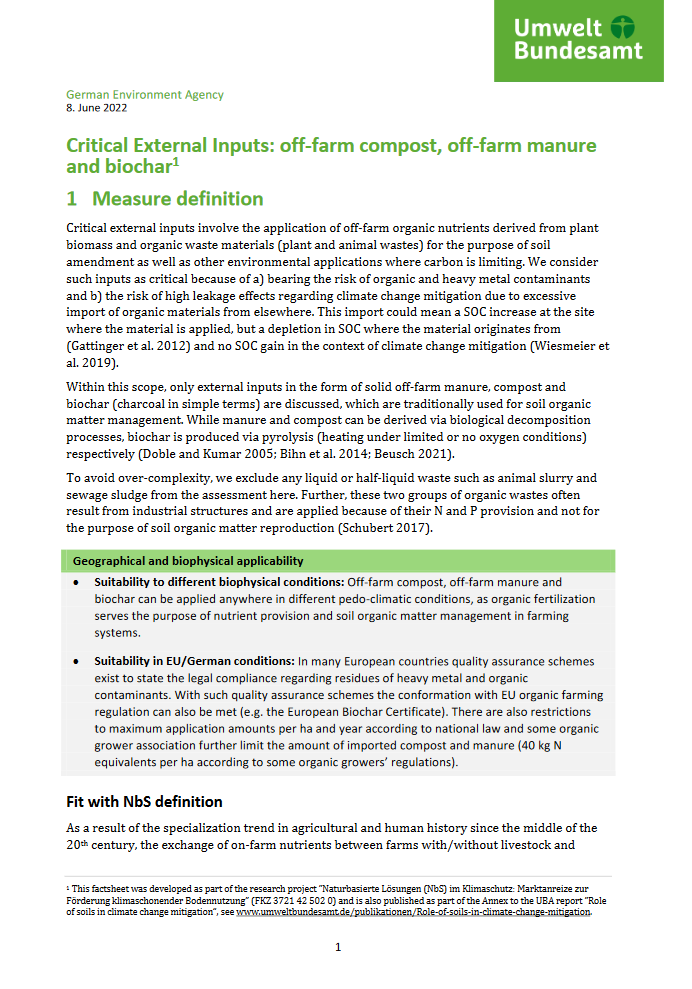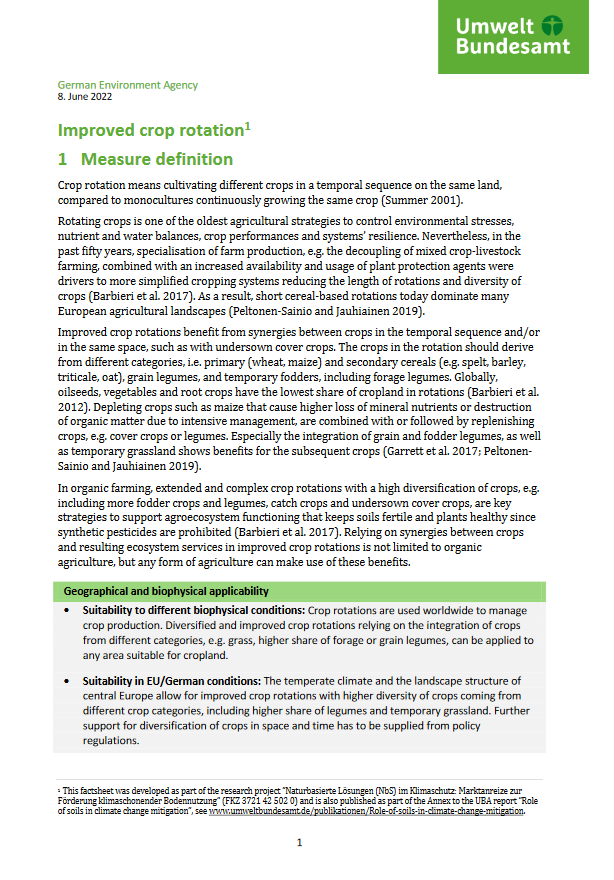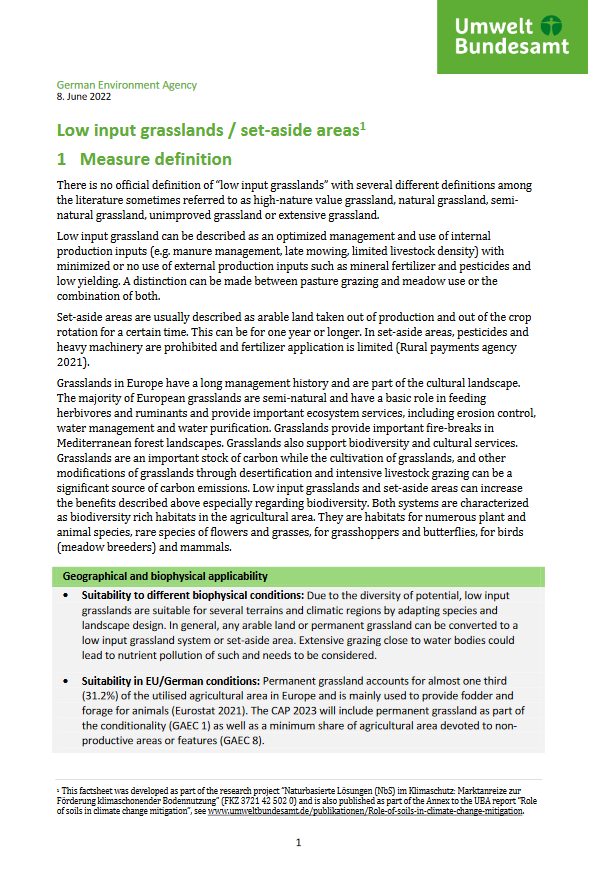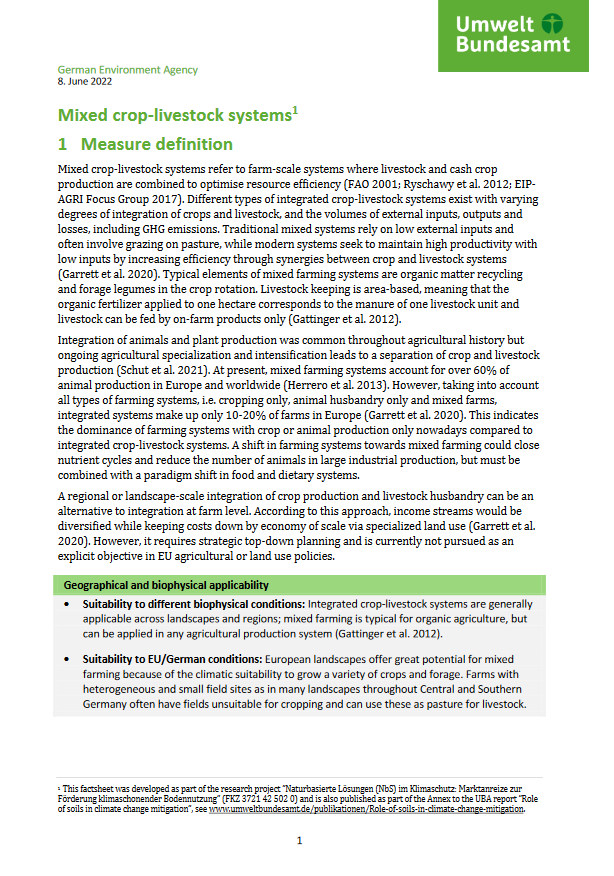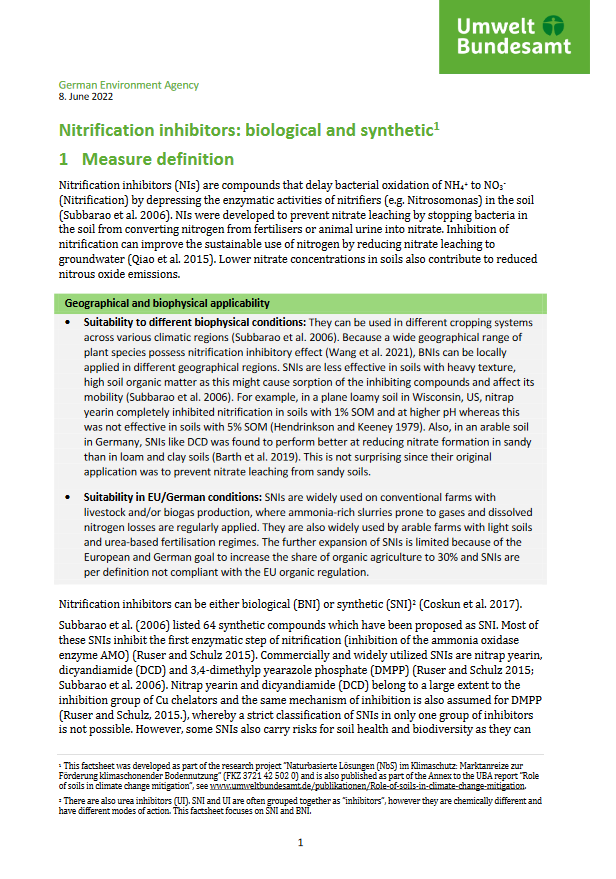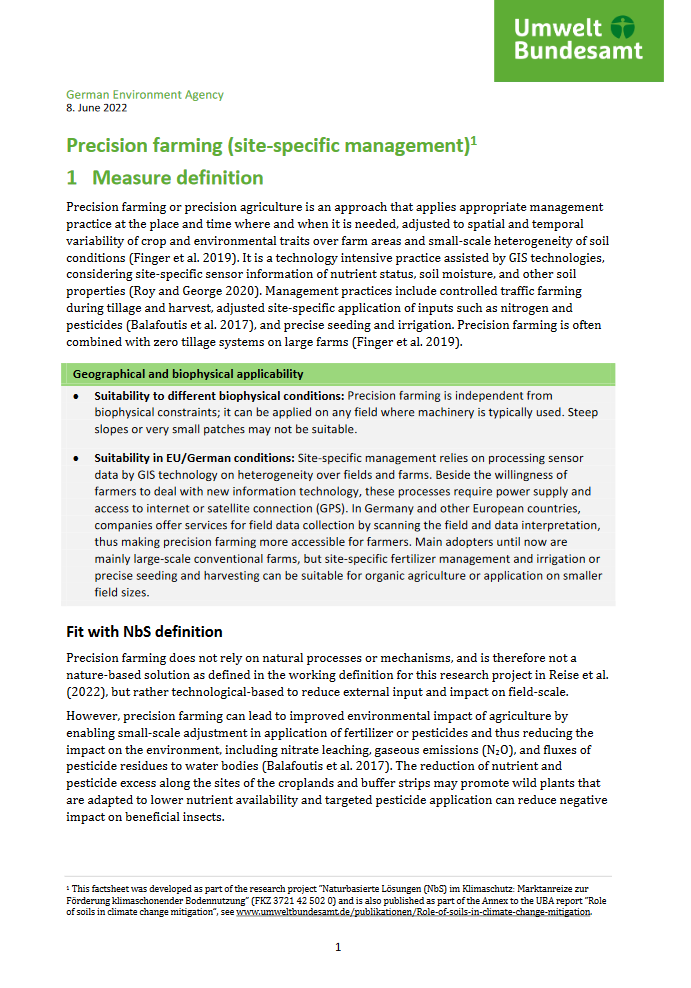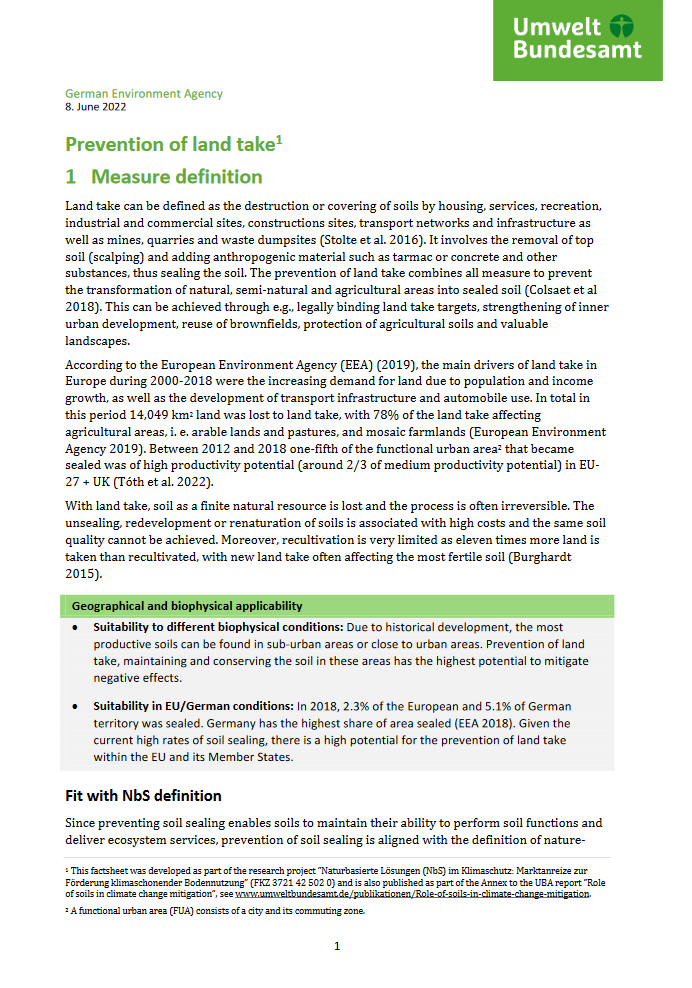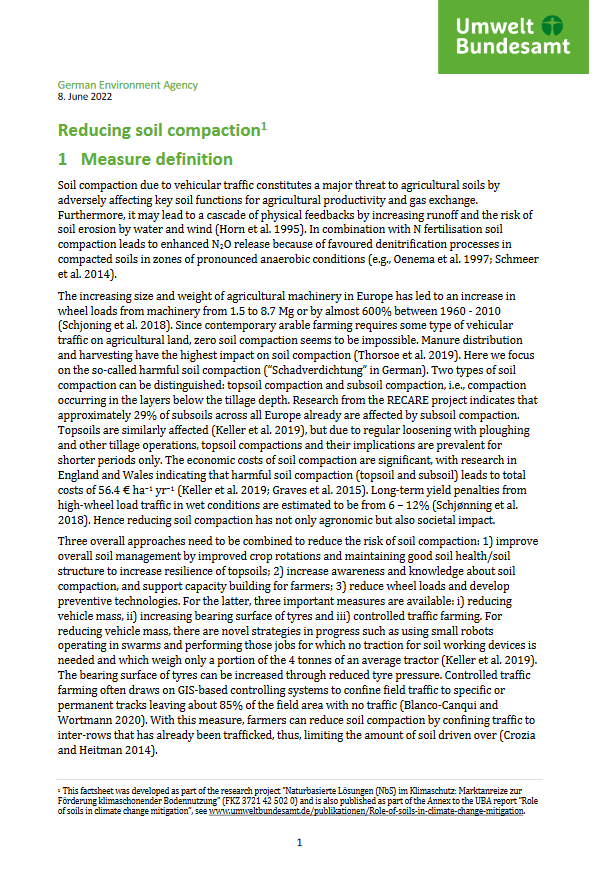Role of Soils in Climate Change Mitigation
- Publication
- Citation
Frelih-Larsen, Ana et al. 2022: Role of soils in climate change mitigation. Interim Report. Climate Change 56/2022. German Environment Agency: Dessau-Roßlau.
This report examines the mitigation potential of climate friendly soil management practices at global, EU and German level, along with key management measures, their co-benefits and trade-offs, and implementation challenges.
Globally, soils store two to three times more carbon than the atmosphere. They play a central role in climate change mitigation as both a carbon sink and a source of greenhouse gas emissions. Historically, carbon stocks have decreased significantly. They will continue to decline if current agricultural land management practices are not improved, peatlands continue to be drained, and land is converted from forests or grasslands to arable land or settlements and infrastructure. Moreover, impacts due to climate change are projected to lead to additional losses.
To realize the potential of soils for climate change mitigation, nature-based measures with significant mitigation potential and co-benefits should be prioritized. This includes preserving current stocks, especially on peatlands where losses are the highest, and protecting forests and other natural ecosystems. Converting arable soils to grasslands in lower productivity areas or where there is high risk of erosion and the establishment and management of agroforestry systems have high mitigation potential and multiple other benefits.
The additional sequestration potential on mineral soils in croplands and grasslands is limited, uncertain and the risk of intentional or unintentional reversal of sequestered carbon is high. Nonetheless, improved management of arable soils is essential for reversing the loss of current stocks and for adapting to climate impacts. In particular, improved crop rotations, integration of legumes, use of cover crops, reducing soil compaction and soil disturbance are important in this context.
Safeguards are also needed for nitrification inhibitors, the application of external inputs (e.g. compost and biochar), and precision farming to avoid any adverse effects from these approaches on soil health and their ability to maintain and sequester carbon.
The total climate impact of soil management measures has to be considered since measures can remove carbon from the atmosphere but can also lead to an increase in emissions. Improved understanding of the net climate impacts is needed so that measures with a net-positive mitigation effect are prioritized and the full climate impacts of measures are captured in greenhouse gas inventories.
